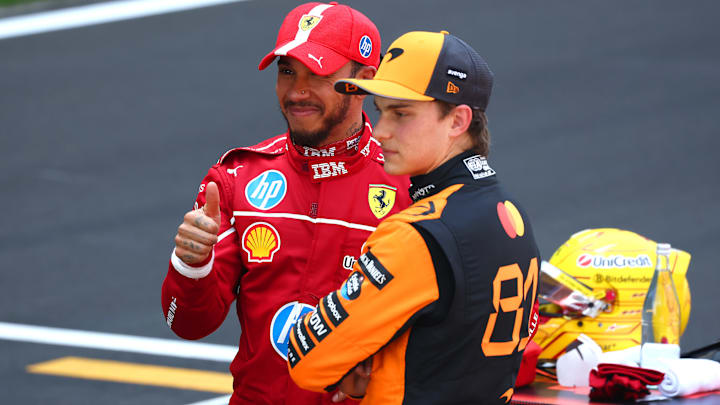If you ask people like Jeremy Clarkson, the world's most famous motor sport athletes have been a bit too bland lately.
A new report from Deadline contains comments from Jeremy Clarkson, the former host of BBC's hit automotive show Top Gear, and they're fairly critical of Formula 1's most prominent personalities.
According to Clarkson, Netflix's Drive to Survive made F1 drivers too conscious of the cameras and microphones around them. While elaborating, the commentator said, "in Formula One, everyone is interviewed all the time. On the way to the track. On the track. Before the race. After the race. It’s constant.”
While continuing his point, Clarkson highlighted that "If you finish in the top three, it’s worse because then you are interviewed after the race before being put in a room with the other podium-finishers."
But every pro athlete gets interviewed nonstop...right?

Sports fans are quite familiar with the nonstop media coverage accompanying their favorite sports. While the most prominent professional sports have always commanded the most coverage, collegiate events like the NCAA Tournament have increasingly acquired more attention from members of the media as well.
With that in mind, it's difficult to see how F1 drivers would have a harder media schedule than athletes like LeBron James, Cristiano Ronaldo, and even David Beckham in his prime.
However, Jeremy Clarkson is sticking to his argument and believes that media projects like Drive to Survive have made F1 drivers too wary of the attentive listeners who are drawn to their every word.
"In the early days, we were regularly treated to hissed altercations, as people didn’t realize they were being recorded. Now, whenever anyone sees a Netflix microphone, they go into PR mode,” Clarkson lamented.
The growth of behind the scenes content in sports media should be good news. Instead of seeing spontaneous fights in the pit area with no explanation, documentaries like Drive to Survive can show us what really happened before the athletes involved came to blows.
However, I can see how Jeremy Clarkson fell out of favor with this aspect of the experience, as there's no way for drivers to justify their actions if the fans at home already know they're in the wrong.
Also, it would be impossible to appeal a fine or suspension if F1 can just ask Netflix for the exact footage they need to prove that a driver deserved to be sanctioned.
When viewing things from that perspective, Jeremy Clarkson might have a decent point after all.
